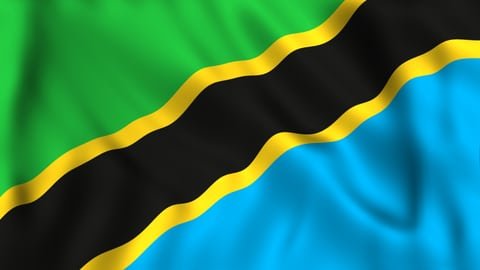Barrick Gold Corp. has requested an Ontario judge to dismiss lawsuits that accuse its Tanzanian subsidiary of human rights abuses near its North Mara mine. The Canadian mining giant argues that the case should be handled in Tanzania rather than Ontario.
Two lawsuits against Barrick are currently before the Ontario Superior Court of Justice, filed in November 2022 and February 2023. The plaintiffs are indigenous Kurya people from villages near the North Mara mine in Tanzania. They include individuals who claim they were injured in 2021 and 2022 when Tanzanian police working with mine security allegedly fired on them. Family members of villagers who were killed during these incidents are also plaintiffs.
The incidents reportedly involved locals trespassing at the mine in search of small amounts of leftover gold in waste rock, which has become a common practice for locals in the area. The plaintiffs accuse Barrick, as the parent company, of negligence in its oversight of its Tanzanian subsidiary.
This marks the first time Barrick faces such human rights cases in a Canadian court for alleged abuses occurring abroad. The lawsuits follow a 2020 decision by the Supreme Court of Canada that allowed another Canadian mining company, Vancouver-based Nevsun Resources Ltd., to be sued in Canada over alleged human rights violations linked to its operations in Eritrea.
During court proceedings this week, Barrick argued that Tanzania is the appropriate location for the lawsuits, as the incidents occurred there and most witnesses, including local police and Swahili-speaking residents, are based in Tanzania. Barrick’s legal team emphasized that Ontario has limited ties to the case, noting that the plaintiffs, evidence, and events all originate from Tanzania, and argued that language barriers would further complicate proceedings in Ontario since many witnesses do not speak English. In its filing, Barrick argued, “There is no meaningful connection between Ontario and the subject matter of this litigation, let alone a real and substantial one.”
The company also pointed out that its Toronto presence is limited, with fewer than 55 employees based in its Toronto head office. Barrick’s CEO, Mark Bristow, has an office there but frequently works overseas and resides in Mauritius.
In response, the plaintiffs argued that the Tanzanian legal system poses significant obstacles that may limit their chances of a fair trial. They contend that barriers to public interest litigation in Tanzania, such as restrictions on contingency fee arrangements for lawyers and limited access to discovery processes, would make it difficult for them to prove their claims. “The courts of Tanzania do not provide an adequate alternative forum for the litigation of these complex claims, let alone a forum which is clearly fairer and more efficient than Ontario,” the plaintiffs argued. They expressed concern that if the case isn’t heard in Ontario, it may not be heard at all.
The plaintiffs also allege that Barrick’s Tanzanian subsidiary, Acacia Mining PLC, has worked in collaboration with Tanzanian police since at least 2010. According to the plaintiffs, Acacia, which Barrick took full control of in 2019, established agreements with the police to provide security around the North Mara mine. A memorandum of understanding between the mining company and Tanzanian police recently submitted as evidence shows that Barrick’s subsidiary pays each police officer approximately 76 Canadian dollars per day and covers additional expenses like vehicle fuel.
The plaintiffs argue that this close financial relationship between Barrick’s subsidiary and the Tanzanian police establishes the company’s responsibility for the police’s actions. They allege that since at least 2010, Barrick has been aware of the frequent use of excessive force by mine security and local police, which has violated international policing standards and human rights.
However, Barrick disputes these claims, arguing that the Tanzanian police operate as a sovereign force under the control of the Tanzanian government. Barrick maintains that it has no authority over the police and no direct involvement in their operations or chain of command.
Justice Edward Morgan, who presided over three days of arguments from both sides, has reserved his decision on whether the case will proceed in Ontario or be moved to Tanzania. A ruling on the matter may take several months, according to legal representatives.
This is not the first time Barrick has faced accusations of human rights abuses in relation to its North Mara operations. The company settled a similar lawsuit earlier this year in the United Kingdom. While it agreed to a settlement with the plaintiffs, Barrick did not admit liability. The earlier case involved allegations from Tanzanian villagers that mine security used excessive force against them.
The Barrick lawsuits come at a time when Canadian mining companies are under increased scrutiny for their overseas operations, especially concerning human rights and environmental impacts.
Just this month, Hudbay Minerals Inc., another Canadian mining company, settled a longstanding series of lawsuits in Canada brought by plaintiffs from Guatemala. The plaintiffs alleged that they or their family members had been injured or killed in confrontations with security forces at Hudbay’s nickel mine in Guatemala. The settlement amount was not disclosed, but the case had attracted attention due to similarities with the Barrick lawsuits, particularly in terms of alleged security abuses at overseas mining operations.
Barrick’s case could set further legal precedent, particularly given the 2020 Supreme Court decision that Canadian companies can face legal action in Canada for alleged human rights abuses abroad. Legal experts have observed that Canada is gradually expanding its jurisdiction over corporate accountability in global operations, though each case will continue to depend on specific factors, including the extent of the company’s ties to Canada.
For Barrick, the outcome of this jurisdictional argument could be significant. If the case remains in Ontario, the company will likely face further scrutiny over its international human rights record and its relationship with local security forces at its overseas sites. If dismissed, however, the plaintiffs would face greater hurdles in securing justice through the Tanzanian courts.
As the legal process unfolds, the case underscores the challenges involved in holding multinational corporations accountable for the conduct of their subsidiaries and security forces abroad, particularly in jurisdictions with differing legal standards and resources.
In June 2024, the London Bullion Market Association (LBMA) withdrew its challenge to jurisdiction in a human rights lawsuit heard in England.
The plaintiffs, who are the families of two individuals fatally shot by security personnel at the North Mara Gold Mine in Tanzania, contend that the LBMA has repeatedly certified gold from this infamous location despite its dismal human rights record. In its efforts to have the lawsuit dismissed, the LBMA had hitherto maintained that it would be more appropriate for the legal proceedings to occur in Tanzania, even though it is a British organization.
The North Mara Gold Mine is notoriously recognized as one of the most hazardous mines in Africa, with documented incidents revealing at least 77 deaths and 304 injuries caused by police and security personnel from 2006 to 2023, in addition to further casualties reported in 2024.




